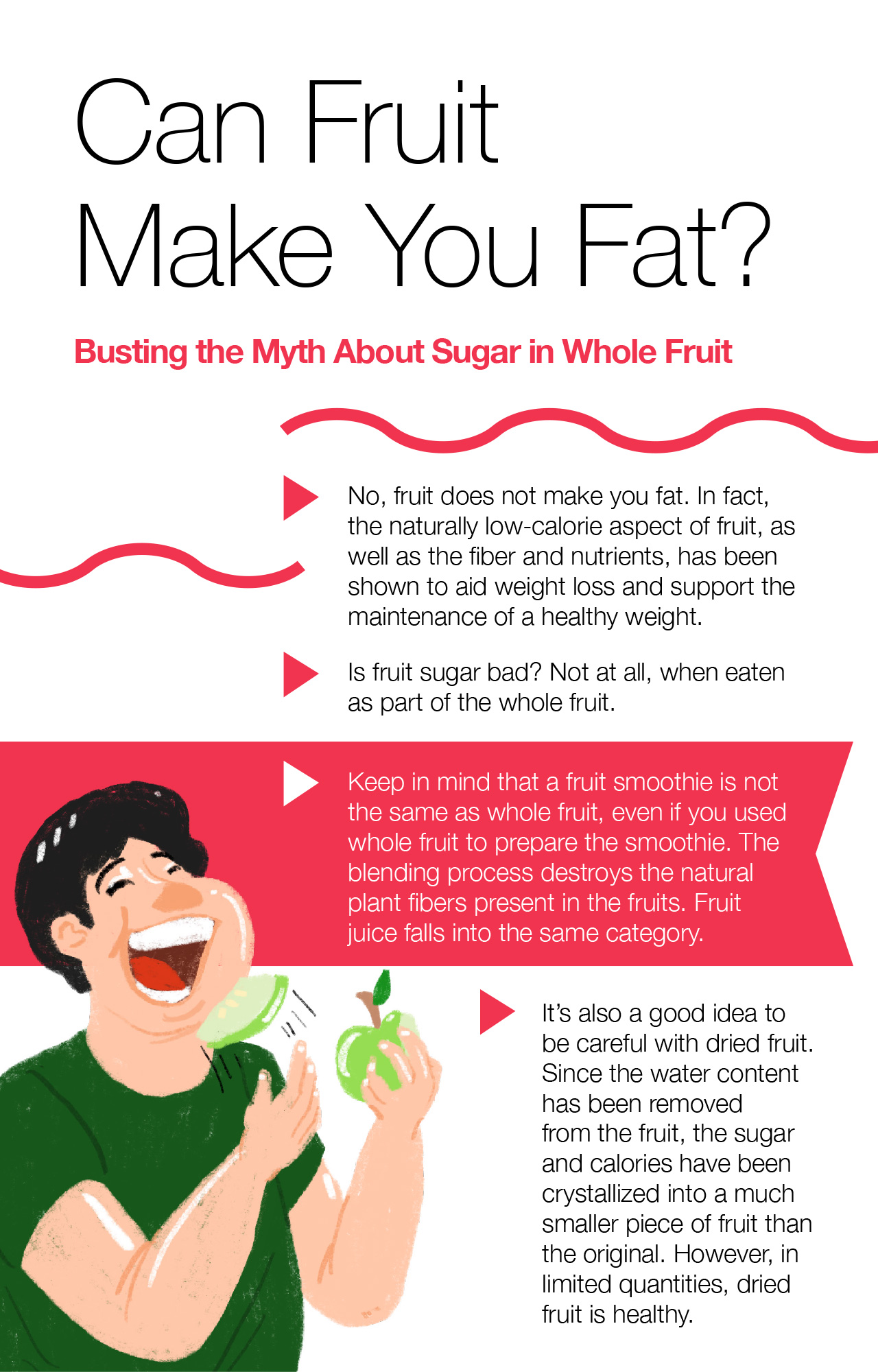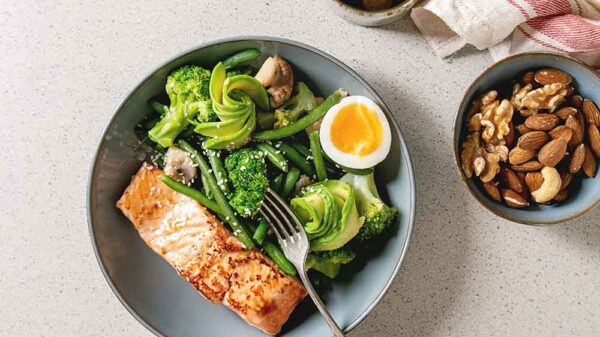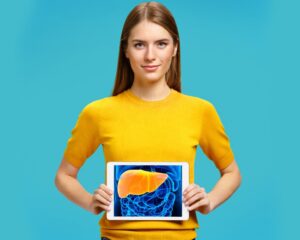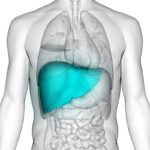When you have fatty liver disease, limiting foods that lead to weight gain is a critical strategy for promoting liver repair. One of the foods to avoid is sugar. However, fruits seem to occupy a gray area, surrounded by arguments and unclear information. A common question is: Can fruit make you fat? Here we clarify the role of sugar and fruit in the fatty liver diet and answer your questions around fruit and its impact on health.
Types of Sugar
The three main types of sugar that we consume through our diet include glucose, fructose, and sucrose. All three types of sugars are carbohydrates that are present in the foods we eat. Glucose and fructose are characterized as monosaccharides, while sucrose is a disaccharide.
Monosaccharides are distinguished from disaccharides based on molecular shape. A monosaccharide is the smallest molecular unit of a carbohydrate. A disaccharide is formed by the biochemical combination of two simple sugars. When comparing fructose vs sucrose, fructose is a simpler unit of sugar. Sucrose, on the other hand, is more complex and is created by bonding a glucose molecule to a fructose molecule.
Processed Sugar
Glucose, fructose, and sucrose are naturally found in many plant products, including fruits. As part of the food manufacturing process, sugar is removed from the plant in which it is originally found. The sugar is isolated and turned into crystallized granules or a syrup, which can then be added to a variety of processed foods: granola bars, cereal, crackers, cookies, candies, and white breads. These sugars are the worst for you and are referred to as “added sugar.”
Why Added Sugar Contributes to Fatty Liver Disease
Your body has a built-in biological pathway for handling sugar. Regardless of the form of sugar you eat, your body breaks these sugars down into glucose.
From there, glucose enters the bloodstream and causes an increase in blood sugar. The presence of glucose stimulates the pancreas to release insulin into the bloodstream, which activates the insulin receptors on the cells throughout your body. These receptors are present in all your organs since glucose is vital for powering cellular processes. Once the insulin binds to these receptors, the cells are able to remove the glucose molecules from the bloodstream and utilize them to carry out normal functions.
Excess glucose is transformed into glycogen, which is stored in your liver. Glycogen stores are important to have on hand when you need energy. However, if you eat too much sugar, biological pathways for glucose utilization are disrupted. Plus, the excess uptake of sugar means glycogen stores are at capacity, which triggers hepatic processes that manufacture fat. The liver manufactures fat in the form of triglycerides, which are sent to different organs to be stored as adipose tissue – which is what we call body fat. Some of these triglycerides also end up in the liver, leading to fatty liver disease. (1)
Research published in Open Heart journal evaluated numerous studies revealing the detrimental effect of added sugars on liver health. The study concludes that added sugar is a significant causal factor in the prevalence of fatty liver disease and recommends that just 5% of caloric intake should come from added sugars. This means that for someone on an average 2,000-calorie diet, just 100 calories would come from added sugars. (2)
Not All Sugar Is Bad
However, the notion that all sugar is terrible for you is entirely oversimplified. In fact, a certain amount of sugar is biologically necessary to provide energy to our cells. In particular, the brain requires a substantial amount of glucose to fire electrical signals and serve as the command center of the entire body.
Busting the Myth About Sugar in Whole Fruit
One of the common misconceptions about eating fruit is that it’s just as bad for you as eating products with added sugar.
Is fruit sugar bad? Not at all, when eaten as part of the whole fruit. In fact, it’s an extremely healthy source of energy. Consuming sugar through whole fruit is drastically different than consuming artificially isolated fruit sugars that have been added to fruit products. When you eat a piece of fruit, you are consuming loads of vitamins, minerals, antioxidants, and fiber, in addition to the sugar. Because whole fruit is combined with fiber, the digestive process is altered. Fiber comes in two forms – soluble and insoluble – and is abundant in whole grains, nuts, seeds, beans, fruits, and vegetables. Fruit contains both types of fiber. Both soluble and insoluble fiber are incredibly healthy and are beneficial for the body. Soluble fiber dissolves in water and inhibits the absorption of carbs like sugar. As a result, sugar is released into the bloodstream slowly, which provides a steady stream of energy that your body can harness and put to good use.
In contrast, when these sugars are removed from fiber and artificially placed into another food, the sugar is absorbed immediately. This contributes to high blood sugar and fat accumulation in the liver.
So, does fruit make you fat? No, fruit does not make you fat. In fact, the naturally low-calorie aspect of fruit, as well as the fiber and nutrients, has been shown to aid weight loss and support the maintenance of a healthy weight.
But can you eat too much fruit, and would that cause weight gain? Too much fruit, of course, that resulted in an excess in calories would lead to weight gain. Overeating fruit would require a concerted effort. It depends somewhat on the type of fruit you are eating. For example, blueberries and raspberries are naturally low in calories and therefore difficult to eat in excess. On the other hand, avocado is higher in fat and calories and would be easier to eat in excess. However, in general, it’s extremely difficult to consume enough servings of fruit to lead to a calorie surplus and subsequent weight gain.
Precaution: Make Sure You Truly Are Eating Whole Fruit
When you eat a piece of fresh fruit, the plant structure and fiber remain intact. Your body can then absorb all of the nutrients that fruit has to offer while absorbing sugar slowly, which diminishes the impact of any natural sugar present in the fruit.
Keep in mind that a fruit smoothie is not the same as whole fruit, even if you used whole fruit to prepare the smoothie. For example, when you make a smoothie, the blending process destroys the natural plant fibers present in the fruits. Fruit juice falls into the same category. Though juice and smoothies retain the vitamins and minerals from the original form of the fruit, they also retain the sugar – but without the fiber. As a result, sugar is able to enter the bloodstream quickly and increase blood sugar levels.
It’s also a good idea to be careful with dried fruit. Since the water content has been removed from the fruit, the sugar and calories have been crystallized into a much smaller piece of fruit than the original. For reference, consider raisins. It’s easy to eat a handful of 20 raisins. But eating 20 grapes in one bite is much more difficult, if not impossible. As a result, it’s much easier to overeat dried fruit. However, in limited quantities, dried fruit is healthy.
In addition, look out for other processed products can masquerade as “whole fruit” products, when in fact, they contain processed fruit sugar. Granola bars, cereals, and other processed foods often use fruit sugar that has been isolated from whole fruit, causing blood sugar spikes.
Fruits and Vegetables Help Fatty Liver Disease
Fruits and vegetables are vital for helping reverse fatty liver disease because they are filled with antioxidants like polyphenols, fiber, vitamins such as vitamin C, and minerals that promote weight loss and help attenuate associated conditions like insulin resistance, high blood pressure, and heart disease. Additionally, antioxidants present in fruits specifically help calm liver inflammation.
Plus, research has actually shown that the sugars in fruit are not associated with fat accumulation in the liver. In fact, a Dutch study showed that the consumption of fruits and vegetables was actually associated with less liver fat. In contrast, processed foods like cake and candy that were sweetened with added sugars were correlated with fat accumulation in the liver. (3)
Similarly, a Japanese study published in Nutrition found that fruit and vegetable intake did not correlate with fatty liver disease. The study concluded by recommending that monitoring fruit intake was not necessary for individuals with nonalcoholic fatty liver disease. (4)
Conclusion
The bottom line is not all sugar is the same and it is nearly impossible to eat enough pieces of fruit to gain weight. Added sugars that are used to artificially sweeten processed foods are a significant causal factor in nonalcoholic fatty liver disease. On the other hand, sugar consumed when eating whole fruit provides a steady stream of energy in addition to liver-healing nutrients like antioxidants, vitamins, and minerals. Fruit is a crucial part of the fatty liver disease diet plan along with vegetables, lean proteins with optimal ratios of essential amino acids, whole grains, beans, nuts, and seeds. Fresh fruit are healthy foods that help support liver repair, metabolic health, and heart health.

References:
(1) https://www.cell.com/cell-metabolism/pdf/S1550-4131(17)30487-4.pdf
(2) https://www.ncbi.nlm.nih.gov/pubmed/29118995






















